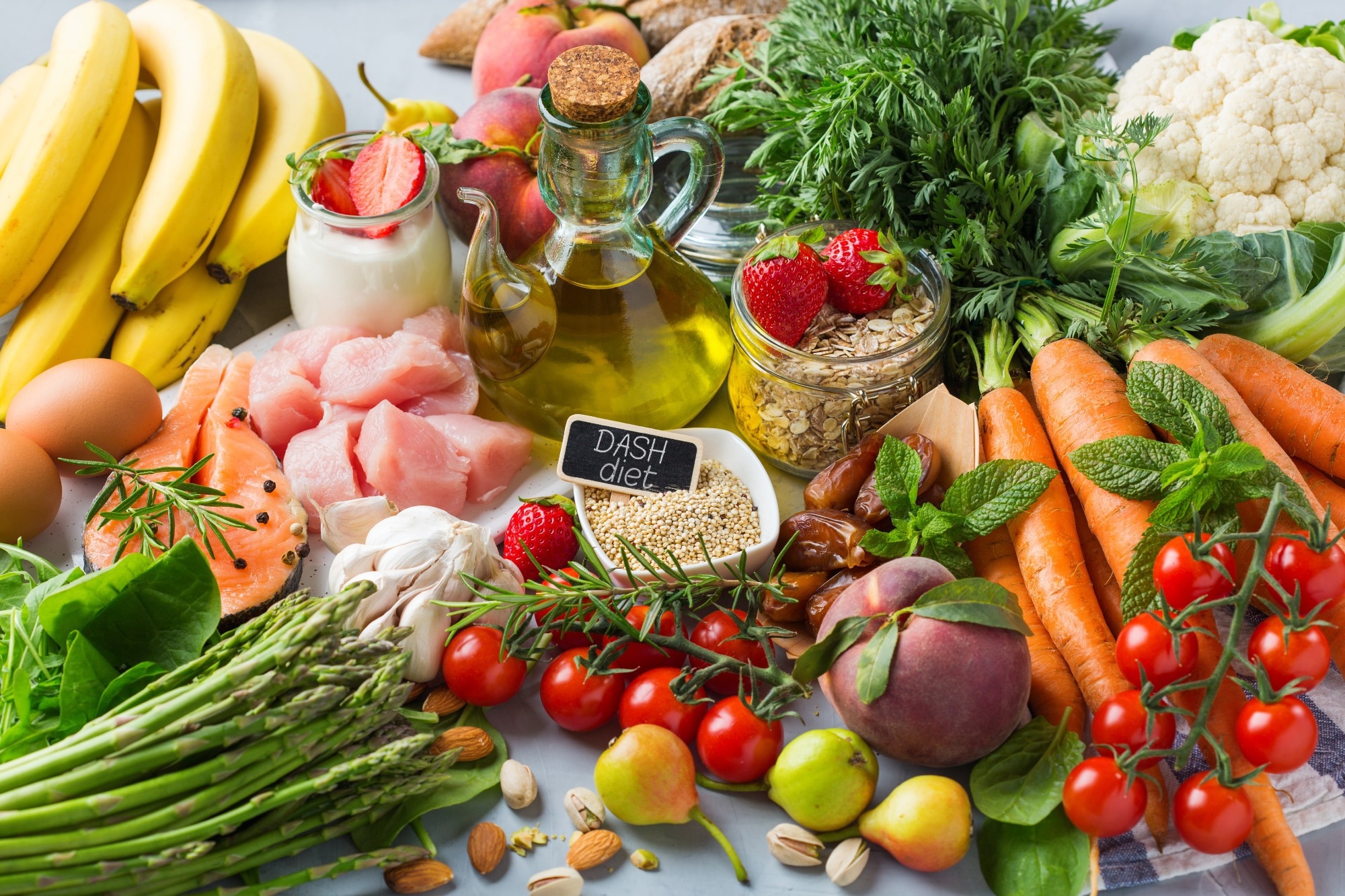Research has shown that the Mediterranean diet (MD) is associated with a lower risk of breast cancer (BC). However, the evidence of the impact of MD on BC survival remains inconclusive.
A recent BMC Medicine study analyzed whether overall and BC-specific mortality was associated with adherence to MD before diagnosis.
 Study: Association of Mediterranean diet with survival after breast cancer diagnosis in women from nine European countries: results from the EPIC cohort study. Image Credit: AntoninaVlasova/Shutterstock.com
Study: Association of Mediterranean diet with survival after breast cancer diagnosis in women from nine European countries: results from the EPIC cohort study. Image Credit: AntoninaVlasova/Shutterstock.com
Background
BC accounted for about one in four cancer cases and one in six cancer-related deaths in 2020. It is the fifth most common cause of cancer death worldwide and the most commonly diagnosed cancer.
The survival rate depends on a number of factors, such as the patient's age, the stage of cancer, and so on. Advances in treatment and early detection are leading to an increased number of survivors.
Recent research has documented that physical activity and body fatness could predict outcomes for BC patients. The evidence on the impact of diet is, however, inconclusive.
As evidenced by the World Cancer Research Fund (WCRF) recommendations for cancer survivors, the MD has been associated with a lower risk of BC.
Few studies have investigated the role of MD in the survival of BC patients. These USA-based studies used different dietary assessment methods, collection times, and different versions of the MD pattern. The results were far from conclusive.
About the study
The objective of the current study was to assess the association between adherence to the MD and all-cause and BC-specific mortality in women diagnosed with BC.
Data from nine European countries were obtained, and the adapted relative Mediterranean diet (arMED) score was used to measure adherence to the MD.
An initial sample of 318,686 women from nine countries was considered in the European Prospective Investigation into Cancer and Nutrition (EPIC) study. Next, a total of 13,270 incident BC cases were identified.
As mentioned above, the arMED score was used to gauge adherence to the MD. arMED is a 16-point score, including eight key components of the Mediterranean diet, and does not consider alcohol.
An arMED score of 0-5 was considered low adherence, 6-8 medium adherence, and 9-16 high adherence. To study the association between the arMED score and overall mortality, multivariable Cox proportional hazards models were estimated. For BC-specific mortality, Fine-Gray competing risk models were applied.
Key findings
It was observed that low adherence to MD pre-BC diagnosis was positively associated with all-cause mortality. Women with low arMED scores had 13% higher risk than those with medium scores.
For each 3-unit increase in the arMED score, a reduction in overall mortality by 8% was noted. This result persisted in a restricted sample of postmenopausal women.
The number of pre-menopausal cases was small, which could have reduced the statistical power to detect significant heterogeneity by menopausal status. Although the arMED score was statistically significantly associated with a lower risk of all-cause mortality, the same was not true while comparing high versus medium adherence. Additionally, no clear associations for BC-specific mortality were observed.
In Mediterranean countries, high adherence to MD appeared to be particularly beneficial against overall mortality.
The message differed in non-Mediterranean countries, where adherence to MD seemed more important when moving from low to medium levels of adherence.
Conclusions
A key strength of the study revolved around the prospective study design and long follow-up time, which enabled the identification of large numbers of deaths among a large sample of BC survivors. The inclusion of populations from Mediterranean and non-Mediterranean countries was a specific advantage.
Lack of information on treatment was an important limitation, which could influence prognosis and survival. Additionally, the results were based on a single dietary assessment, which could be inadequate to reflect changes in dietary habits.
The current study suggests that adherence to the MD pre-BC diagnosis could improve long-term prognosis. This is especially true for postmenopausal women. The protective effect of MD was seen to be more robust in women diagnosed with metastatic BC tumors.
The link between BC outcomes and post-diagnosis dietary patterns remained unclear and post-treatment completion. Patients were advised to follow general cancer prevention guidelines.
In the future, more research could help develop specific dietary recommendations for BC survivors. Large and well-designed dietary interventions could be the way to go.
Another fruitful avenue for research is to uncover the underlying biological mechanisms of various dietary patterns. This could shed light on the role of nutrition in BC prognosis.